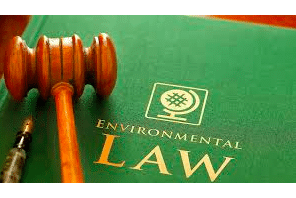Here’s the introduction
By Michael B. Gerrard
The constitutions of more than three-quarters of the countries on earth have explicit reference to environmental rights or responsibilities In the last several years courts in the Netherlands, Germany, France, Australia, Pakistan, Nepal and Colombia have held that these provisions, or similar non-statutory doctrines, require national governments to act on climate change.
Not so in the United States. The U.S. Constitution has no explicit right to a clean environment, and efforts to persuade judges to find an implied right have not succeeded. Most recently, in the famous Juliana v. United States case, plaintiffs sought an order directing the federal government to slash the nation’s greenhouse gas emissions. The district court in Oregon in 2016 seemed to favor such a right, but a divided Ninth Circuit concluded in 2020 that the plaintiffs lacked standing. (The plaintiffs are now back in the district court seeking much more modest relief.)
However, the constitutions of six states do have provisions with explicit environmental rights – Hawaii, Illinois, Massachusetts, Montana, Pennsylvania, and Rhode Island. Several other states’ constitutions have language about protecting the environment, but without clearly creating any rights. Most of these provisions were enacted in the early 1970s during that great period of environmental lawmaking, but they received relatively little attention until a 2013 decision by the Pennsylvania Supreme Court, Robinson Township v. Commonwealth, which used the state constitution’s Environmental Rights Amendment to invalidate a state statute that had prevented municipalities from barring hydraulic fracturing.
As John Dernbach wrote in a recent blog for ACOEL, on July 21, 2021 the Pennsylvania Supreme Court held that this amendment required all state revenues from oil and gas leases to go to conserve and maintain public natural resources for the benefit of future generations.
Now we have an important new decision from Montana.
On August 4, 2021, the Montana First Judicial District Court denied defendants’ motion to dismiss in Held v. State of Montana, a suit brought by some of the same lawyers involved in Juliana. The plaintiffs – 16 young people – alleged that they were harmed by the state’s energy and environmental policies that encouraged the use of fossil fuels, thereby increasing greenhouse gas emissions and worsening climate change. The court found that the state’s actions implicate plaintiffs’ rights under the provision of the state constitution that that declares that “[a]ll persons … have certain inalienable rights. They include the right to a clean and healthful environment.”
Read the full article at http://blogs.law.columbia.edu/climatechange/2021/08/31/environmental-rights-in-state-constitutions/




